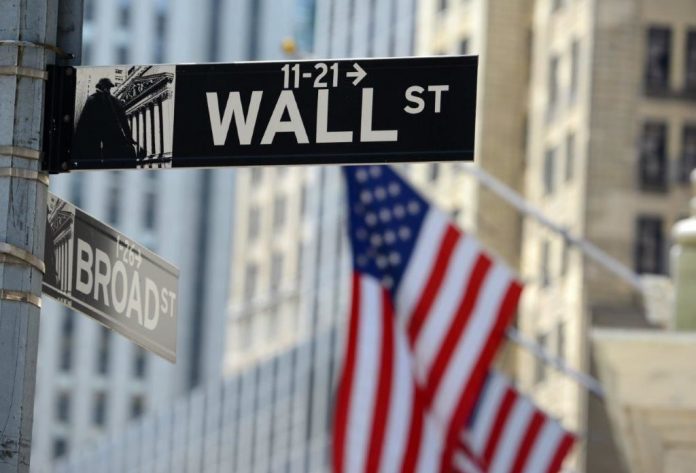__
By STAN CHOE AP Business Writer
Wall Street rallied again on Friday after a terrible, unprecedented report on the U.S. jobs market wasn’t quite as horrific as economists had forecast.
The S&P 500 climbed 1.1% in morning trading after the government said employers cut a record-setting 20.5 million jobs last month. While the number is a nightmare, it was slightly below the 21 million that economists told markets to brace for. Investors are also increasingly betting they won’t see another report that bad again because the number of workers filing for unemployment benefits has been slowly declining the last five weeks.
Stocks around the world were already heading higher before the U.S. jobs report came out, in part on hopes that U.S. and China won’t restart their trade war. After the release of the report, stocks climbed even more. Treasury yields also bumped higher following the report, a sign of receding pessimism, but they lost their gains as the morning progressed.
The Dow Jones Industrial Average was up 303 points, or 1.3%, at 24,179, as of 10:50 a.m. Eastern time. The Nasdaq was up 1.1%. The S&P 500 is heading toward its first winning week in the last three.
“The question that matters isn’t whether the economy is at a standstill — it is,” AllianceBernstein senior economist Eric Winograd wrote in a report. “What matters now is when and how the economy recovers, and today’s data are largely backward-looking and therefore don’t alter our fundamental view of the outlook.”
After losing a third of its value in a little more than a month on worries about a severe recession, the S&P 500 has since charged higher to recover more than half its loss. The rally started after the Federal Reserve and Capitol Hill pledged trillions of dollars in aid to prop up the market and economy through the downturn.
More recently, even as horrific data confirmed the recession fears were correct, investors have pushed stocks higher as they looked ahead to growth potentially resuming later this year. Countries around the world and many U.S. states have laid out plans to relax restrictions on business, which could set the stage for many of those vanished jobs to reappear.
“This is a policy-induced downturn, and the speed and structure of the recovery could track a different path from previous recessions,” Stephen Innes, chief global markets strategist at AxiCorp, said in a report. “The bounce-back will be much quicker.”
Many analysts are skeptical of the rally, though, saying the economy likely won’t recover nearly as vigorously and quickly as the stock market has. Friday’s jobs report showed that the unemployment rate climbed to its highest level since the Great Depression.
Stocks got off to a strong start earlier on Friday after a Chinese state media report said top U.S. and Chinese trade negotiators talked on the phone and are working to implement a trade deal. That helped calm building concerns that tensions between the world’s largest economies were close to flaring up again.
The last thing investors want is another round of punishing tit-for-tat tariffs that would drag even more on an economy already sliding into a severe recession.
Companies whose profits are usually most closely tied to the strength of the economy led the market higher. Energy producers in the S&P 500 jumped 2.4% for the biggest gain of the 11 sectors that make up the S&P 500. Industrial companies and financial stocks were also stronger than the rest of the market.
They’re the three sectors of the market that were hardest hit earlier in the year on worries about the coming recession, which would cause demand for their products to vanish and saddle banks with bad loans.
Smaller stocks also rose more than the rest of the market, an indication of the market’s belief in stronger growth ahead. Small-cap stocks have historically sunk more than their bigger rivals heading into downturns but rebound harder in anticipation of recoveries, and Friday’s 2.2% gain for the Russell 2000 was more than double big-stock indexes.
In Asia, Hong Kong’s Hang Seng added 1%, and stocks in Shanghai rose 0.8%. South Korea’s Kospi gained 0.9%. In Europe, France’s CAC 40 rose 0.8%, and Germany’s DAX returned 1.2%.
The yield on the 10-year Treasury note rose as high as 0.66% shortly after the job report’s release, up from 0.63% late Thursday. That yield tends to move with investors’ expectations for the economy and inflation. But it dipped back down to 0.63% as the morning progressed.
Benchmark U.S. crude rose 0.9% to $23.77 per barrel, continuing its strong week and recovering some more of its record-setting losses from earlier in the year. Brent crude, the international standard, added 1.6% to $29.92 per barrel.
___
AP Business Writer Yuri Kageyama contributed.






